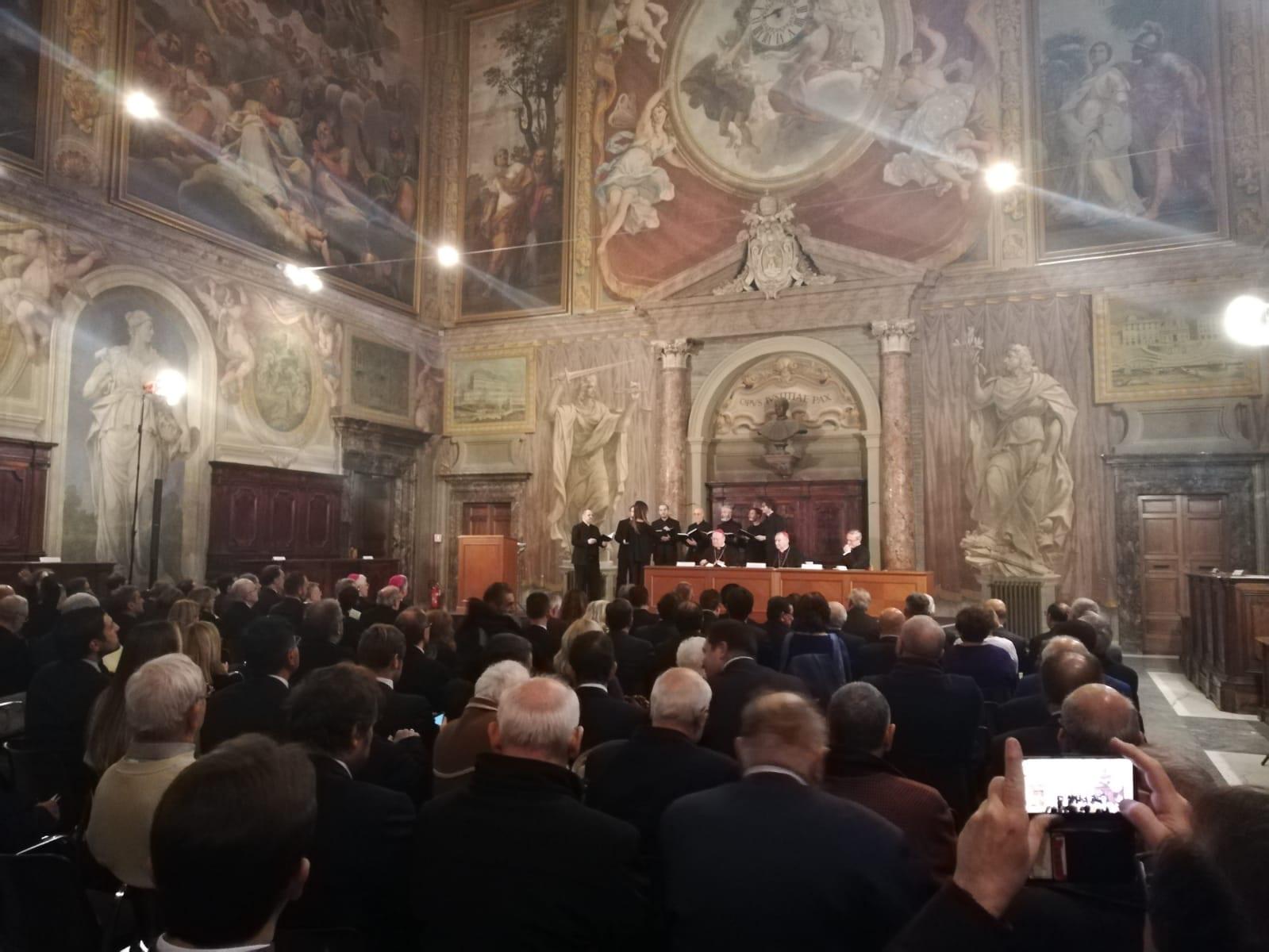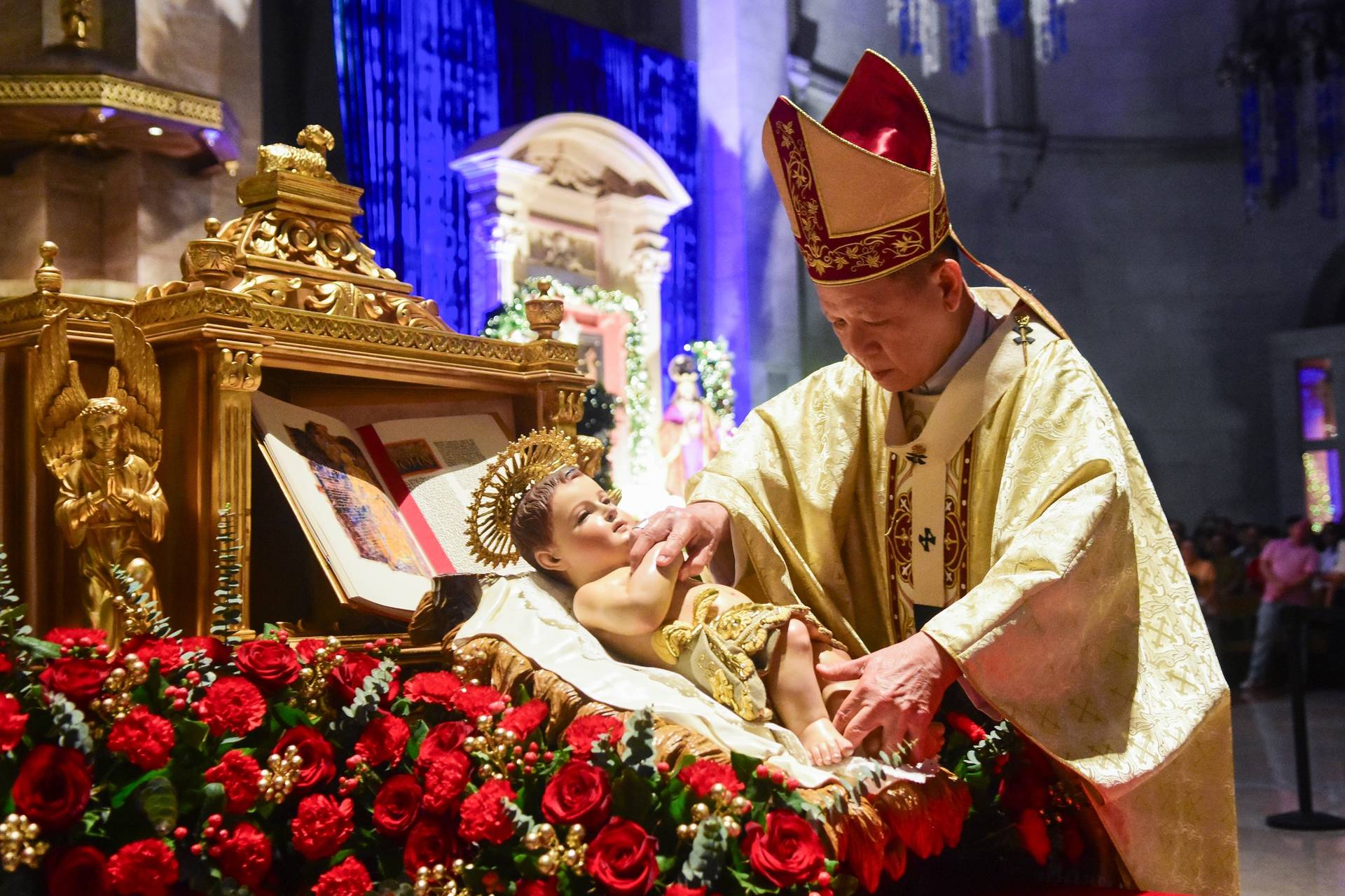ROME – Pope Francis’s top advisor confirmed to a small group of journalists that he will be attending the UN sponsored summit on migration set to take place in Marrakesh, Morocco Dec. 10-11.
“Yes, we will attend the event,” said Italian Cardinal Pietro Parolin, the Vatican’s Secretary of State, in a Dec. 4 interview. “There will be a Holy See delegation that I myself will lead.”
Asked on whether he had any more information about the February 21-24 meeting of the heads of bishop conferences from around the world to discuss the protection of children and vulnerable adults, Parolin said that the committee is working hard in preparation.
“I have no news except that we are preparing,” he said. “The group that will prepare this meeting has been selected and they are working also on other things.”
“For the moment I don’t think we can comment,” he added.
December is an important month in terms of the Vatican’s diplomatic agenda, as two major UN-backed events are taking place on migration and climate change.
State representatives will convene in Marrakesh, Morocco for the Dec. 10-11 United Nations Intergovernmental Conference to Adopt the Global Compact for Safe, Orderly and Regular Migration, which were conceived during a U.N. general assembly in September 2016.
“The Holy See has collaborated, especially thanks to the section on migrants and refugees of the dicastery for Integral human development, in a significant way to the creation of this document,” Parolin said.
“It seems to us that it’s a good reference point to at least begin to address in a collective way the topic of migration.”
While the approval of the Global Compacts is not legally binding for countries, the cardinal said that he hoped they “will favor a different narrative,” which will take a step back from the often-heard “negative aspects” of migration and instead help foster further reflection on its positive impact.
Francis had been invited to attend the gathering, but he declined at the last minute and will travel to Morocco in 2019 for a papal visit. Some observers were surprised by the decision, especially considering that several key countries, such as Italy and the United States, will also skip the meeting.
“I don’t judge anyone,” Parolin said about the Italian government’s decision to not attend. “I can only express my disappointment, in the sense that this can be a useful tool.”
Other nations that have opted out of the Marrakesh adoption ceremony include Hungary, Austria, Poland, Israel, Bulgaria, Czech Republic, Australia, and Slovakia.
“Let’s hope that this does not undermine the effort to face this topic, which I repeat must be addressed in a collective and global way,” Parolin said, adding that the same must be said of the UN-sponsored COP24 gathering in Katowice, Poland, taking place Dec. 1-14 and addressing the need for practical action against climate change. (Parolin addressed the climate meeting on Monday.)
The Italian cardinal also spoke on the recent “security” decree created by Italy’s governing coalition of left and right populist movements, which prohibits the renovation of asylum papers and eliminates humanitarian protection for immigrants and refugees.
According to estimates up to 12,000 immigrants will be forced to leave the country, and Italians woke up Dec. 3 with images on the news portraying families left on the street after being expelled from their welcoming centers.
“Our position is very, very clear on this issue,” Parolin said, “above all else a deep sense of solidarity must prevail.”
“One cannot put people in these situations. The human person and his dignity must always be at the center, which concretely means paying attention to his real and complete necessities,” he added.
Parolin answered questions on the margins of a Dec. 4 conference in Rome titled “Eternity, the other face of life” where the winners of the “Prize of the Pontifical Academies” was handed out for two theses on theology and exegesis.
In a letter from Francis to attendees and read by Parolin, the pontiff encouraged scholars to “newly and more greatly reflect” on the topic of eternity and life after death, in order to promote Christian humanism.
“Eschatological reflection on eternal life and resurrection, in catechesis and Mass, does not find the space and attention it deserves,” Francis wrote. “There is sometimes the impression that this theme is willfully forgotten and abandoned because it is apparently distant, alien to daily life and contemporary sensibility.”















